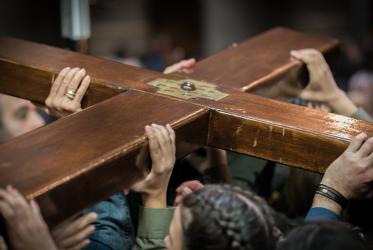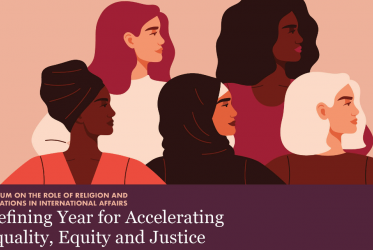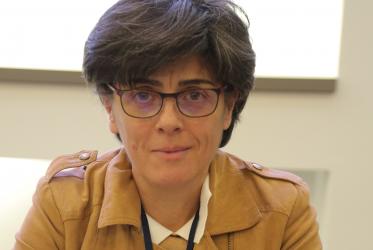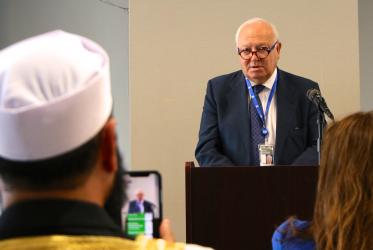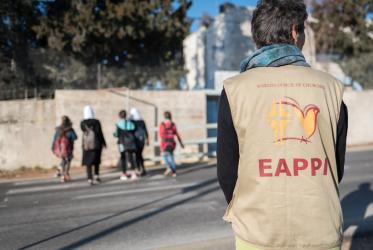Displaying 21 - 40 of 122
02 July 2021
Brazilian churches call for transformative racial justice
23 November 2020
WCC executive committee maps future with hope in uncertain times
19 November 2020
Hope prevails in times of crisis in Lebanon
14 September 2020
South Sudan Church leaders welcome new cabinet
15 March 2020
Worshipping safely: UN, faith communities unite to prevent violence
20 September 2019
Dr Saïd Ailabouni: God is on the side of rejected, oppressed, occupied
12 September 2019
A passionate Korean feminist and ecumenist
21 August 2019
Latest gun violence in US poses challenges for churches
05 August 2019

